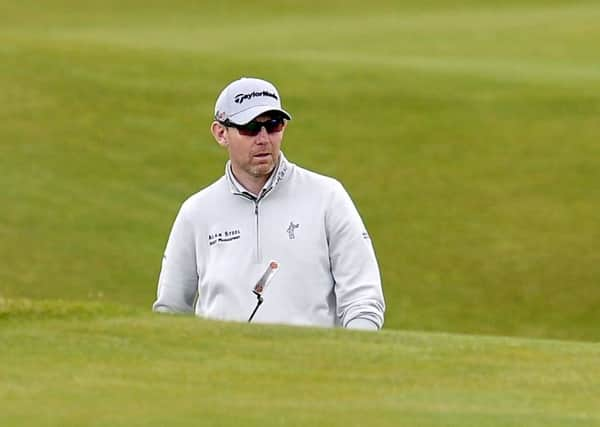Stephen Gallacher: Limit ball search to speed up golf


Following the mass knocking together of heads – the symposium involved representatives of national affiliated bodies and figures from some of the game’s key organisations – a pace of play manual will be published by the sport’s governing body next spring. Its main aim will be to raise awareness of the solutions for an improvement in the pace of play, with particular emphasis on seeing the game played quicker at club level.
“Committees need to take control of the problem,” insisted David Rickman, the R&A’s executive director of Rules who doubled up as master of ceremonies for the first such conference to be held by the St Andrews-based organisation in 12 years.
Advertisement
Hide AdAdvertisement
Hide AdOne of the speakers, it was Stephen Gallacher who suggested that the five minutes currently permitted to search for a ball should be reduced. “Why can’t it be three minutes?” he asked. Referring to that as the “Gallacher proposal”, Rickman said it would be looked at, as will the rules covering flagsticks and people having to play in an order dictated by how far they are away from the hole.
While hitting an unattended pin with a shot played from off the green is fine, of course, once you are on the green, if your ball hits the flagstick you will be penalised. Especially to help two-balls, however, that could change while, with “Ready Golf” having been mentioned on a number of occasions during the conference, the tradition of the player closest to the flag hitting last may also be approaching its sell-by date. “We are always fearful of eroding player skill. We never want to diminish that because it is at the heart of the game,” added Rickman. “But we will look at what the rules can do to contribute to speeding the game up for ordinary golfers.” He reckoned the “jury is out” on whether or not distance measuring devices have helped in that respect. Nigel Edwards, a two-time winning Walker Cup captain, agreed, claiming he felt they were having a detrimental effect on the development of young players. “They have decreased the course management skills of elite amateurs,” said the Welshman, another of the speakers. “They just zap the distance and fire at the flag. I’d rather see them not used as players are not managing their golf balls around a course.”
As well as echoing that view, Gallacher called for so-called green books, the putting equivalent of a course guide that break greens into segments, to be outlawed. “You need to be a physicist to work them out and I’d ban them,” he said in the wake of 14 of the 21 players put on the clock at the recent European Tour Qualifying School in Girona being down to either that or the AimPoint technique.
Once the dust settles on two days that left few stones unturned – some, of course, will feel the golf ball itself should have been on the list of topics – R&A chief executive Martin Slumbers will task his staff to deliver a manual he believes can help create a brighter future for the sport, though he admits it comes down to individual golfers to implement suggestions.
“I don’t think a policy would work,” he said. “It wouldn’t be effective, it wouldn’t be treating people with respect. This is what people enjoy doing at the end of the day, playing golf. The balance of fairness between how one group is playing and its impact on the group behind is important.
“Some people naturally are fast walkers, others are not. Maybe we need to devise a pace of play handicap. A kind of slow, medium and fast. That was one idea that struck me, as did some of the things we heard about the course set-up. We can set up a course to be unplayable, but we have to remember that the average handicap in this country is about 18 so let’s set it up so that 18 handicappers can play.”